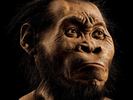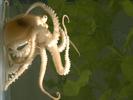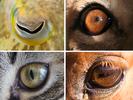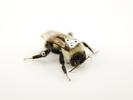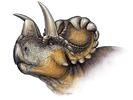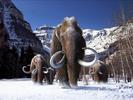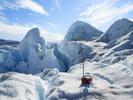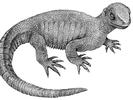Nell Greenfieldboyce appears in the following:
What Would Happen If We Burned Up All Of Earth's Fossil Fuels?
Friday, September 11, 2015
Scientists used an estimate of how much fossil fuel is left in the ground to do computer simulations and come up with a worst-case scenario.
South African Cave Yields Strange Bones Of Early Human-Like Species
Thursday, September 10, 2015
Deep inside a rocky chamber, reached by a narrow crevice, researchers found more than 1,500 fossilized bones of what may be the gravesite of a creature never before identified by science.
Cellphone Records Could Help Predict Dengue Outbreak
Tuesday, September 08, 2015
Cellphone records could help epidemiologists predict which cities and towns might be hit next by dengue, the most rapidly spreading mosquito-borne disease in the world.
That's because cellphone records let scientists track how people actually move around, says Amy Wesolowski, a researcher who models epidemics at the Harvard ...
Tree Counter Is Astonished By How Many Trees There Are
Wednesday, September 02, 2015
Earth is home to more than 3 trillion trees, a new map of forest density shows. That's more than anyone realized. But the total is also down about 46 percent since the first humans arrived.
How Are U.N. Climate Talks Like A Middle School? Cliques Rule
Monday, August 31, 2015
Tiny island nations, Latin American developing countries and even non-joiners like Switzerland have all found more power and influence in climate negotiations after forming or joining a group.
Froggy Went A-Courtin', But Lady Frogs Chose Second-Best Guy Instead
Thursday, August 27, 2015
Given two choices of attractive mates, female frogs pick the top vocalist. But add a third, inferior male to the mix, and females go for No. 2. The "decoy effect" shapes some human choices, too.
How Dorothy Parker's Ashes Ended Up In Baltimore
Wednesday, August 19, 2015
Dorothy Parker considered New York City her beloved hometown, but Parker's ashes can be found in Baltimore. Where were they before that? (This piece initially aired June 7, 2012 on Morning Edition.)
Drones Increase Heart Rates Of Wild Bears. Too Much Stress?
Thursday, August 13, 2015
Scientists studying animals in their natural habitats can now just send in a drone with a camera, rather than trudging through rough terrain. But a new study finds that the drones don't go unnoticed.
Octopus Genome Offers Insights Into One Of Ocean's Cleverest Oddballs
Wednesday, August 12, 2015
Octopuses are cool. They can regrow lost arms, change the color of their skin, and are surprisingly smart. Scientists who sequenced the first octopus genome say it's nearly as big as a person's.
Astronomers Present New Research On The Aging Universe
Monday, August 10, 2015
An international team of astronomers has measured the energy produced within a large portion of space more precisely than ever before, and their work shows how the universe is slowly dying.
Eye Shapes Of The Animal World Hint At Differences In Our Lifestyles
Friday, August 07, 2015
Take a close look at a house cat's eyes and you'll see pupils that look like vertical slits. But a tiger has round pupils — like humans do. And the eyes of other animals, like goats and horses, have slits that are horizontal.
Scientists have now done the first comprehensive ...
Heavy Loads Of Pollen May Shift Flight Plans Of The Bumblebee
Monday, August 03, 2015
Foraging bumblebees can pick up nearly half their weight in pollen before heading home to the hive, research shows. All that weight tucked into hollows on their hind legs can complicate flying.
How 3-D Printing Helps Scientists Understand Bird Behavior
Thursday, July 30, 2015
Scientists who study bird behavior have made fake eggs to put in nests to see how birds react. This handicraft is going high-tech. (This piece first aired on May 26, 2015, on All Things Considered.)
Scientists Discover One Of The Oldest Horned Dinosaurs
Wednesday, July 08, 2015
The "new" dinosaur — named Wendiceratops pinhornensis — lived about 79 million years ago and helps scientists understand the early evolution of the family that includes Triceratops.
Checking DNA Against Elephants Hints At How Mammoths Got Woolly
Thursday, July 02, 2015
A clump of a mammoth's fur bought on eBay led scientists to a long list of ways the extinct species was special. One specific gene likely played a role in helping mammoths thrive in icy weather.
U.N. Brokers Global Effort To Rein In Greenhouse Gas Emissions
Tuesday, June 30, 2015
Speeches by high-level representatives were an attempt to keep momentum going as the world moves toward a key summit in Paris this year, which may produce an agreement to control greenhouse gases.
U.N. Holds Climate Talks In New York Ahead Of Paris Meeting
Monday, June 29, 2015
The United Nations is having a high-level climate meeting ahead of the end-of-year meeting in Paris that will hopefully result in a major new agreement to rein in greenhouse gases.
Study Reveals What Happens During A 'Glacial Earthquake'
Thursday, June 25, 2015
Scientists have figured out how massive chunks of ice trigger these seismically detectable events when they break off a glacier. The findings could help researchers track ice loss from glaciers.
How The Turtle Got Its Shell
Wednesday, June 24, 2015
The ribs of a 240 million-year-old fossil hold clues to how the first turtle shell evolved. And its skull shape seems closer to that of lizards and snakes than to an ancestor of dinosaurs and birds.
Instead Of Replacing Missing Body Parts, Moon Jellies Recycle
Monday, June 15, 2015
If a starfish loses a limb, a new arm buds and grows in its place. But young moon jellies have a different strategy for self-repair: Existing limbs rearrange themselves to regain symmetry.


